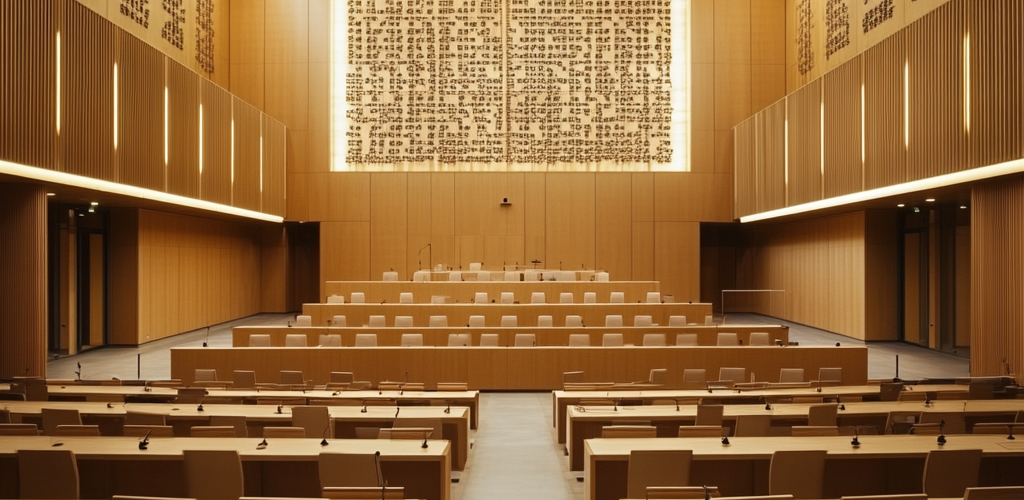On February 14, 1985, the ECJ issued its judgment in the case C-268/83 (Rompelman).
Context: Harmonisation VAT – Sixth directive – Concept of taxable person.
Summary
- Case Background: The case involved Mr. and Mrs. Rompelman, who sought a VAT refund for acquiring future property rights with the intention to let the premises. The Dutch Supreme Court referred the case to the ECJ for interpretation of the Sixth VAT Directive.
- Key Question: The court was asked whether acquiring future property rights with the intention to let constitutes an economic activity under Article 4(1) of the Sixth Directive, allowing VAT deduction.
- Court’s Decision: The ECJ ruled that acquiring future property rights with the intention to let can be considered an economic activity, thus allowing VAT deduction, provided there is objective evidence supporting the intention for commercial use.
- Justification for Decision: The Court emphasized that VAT should be neutral regarding business tax burdens. Preparatory acts, like acquiring property rights, are part of economic activities if they are closely connected to future taxable transactions.
- Objective Evidence Requirement: While recognizing the acquisition as an economic activity, the Court allowed tax authorities to require objective evidence, such as proof of suitability for commercial exploitation, to support the declared intention.
Article in the EU VAT Directive
Article 4(1) of the Sixth Directive (Article 9 of the EU VAT Directive 2006/112/EC)
Article 9
1. ‘Taxable person’ shall mean any person who, independently, carries out in any place any economic activity, whatever the purpose or results of that activity.
Any activity of producers, traders or persons supplying services, including mining and agricultural activities and activities of the professions, shall be regarded as ‘economic activity’. The exploitation of tangible or intangible property for the purposes of obtaining income therefrom on a continuing basis shall in particular be regarded as an economic activity.
2. In addition to the persons referred to in paragraph 1, any person who, on an occasional basis, supplies a new means of transport, which is dispatched or transported to the customer by the vendor or the customer, or on behalf of the vendor or the customer, to a destination outside the territory of a Member State but within the territory of the Community, shall be regarded as a taxable person.
Facts & Background
- Parties Involved: The case involved Mr. D. A. Rompelman and Mrs. E. A. Rompelman-Van Deelen, who were appealing against the Minister for Finance in the Netherlands.
- Property Acquisition: On November 25, 1978, the Rompelmans acquired future rights to two units in a building that was under construction, along with a usufructuary interest in the land. These units were designated as “showrooms” on the building plan.
- Intention to Let: In June 1979, the Rompelmans informed the tax authorities that they intended to let the showrooms to traders and planned to apply for a tax exemption for letting under the Dutch Turnover Tax Law.
- VAT Refund Claim: On October 18, 1979, the Rompelmans filed a VAT return claiming a refund of HFL 14,186.46 for input VAT related to the acquisition of the property. However, the notarial deed transferring ownership was not executed until October 31, 1979, meaning the property had not yet been let.
- Tax Authority’s Rejection: The tax authority rejected their VAT refund claim on the grounds that the actual exploitation of the property had not commenced, as they had not yet let the premises.
- Legal Proceedings: The Rompelmans appealed the decision, and the Regional Court upheld the tax authority’s rejection. They further appealed to the Hoge Raad der Nederlanden (Supreme Court of the Netherlands), which referred the case to the European Court of Justice (ECJ) for clarification on the interpretation of the Sixth VAT Directive.
- Legal Question: The main legal question was whether the acquisition of a right to future property could be considered as “exploitation” under the Sixth Directive, thus entitling the Rompelmans to deduct VAT.
- Context of the Sixth Directive: The case revolved around the interpretation of Articles 4 and 17 of the Sixth Council Directive (77/388/EEC), which governs the VAT system in the EU and outlines the rights to deduct VAT based on economic activities.
Questions
Does “exploitation” within the meaning of the second sentence of Article 4(2) of the Sixth Directive commence as soon as a person purchases future property with a
view to letting that property in due course?
AG Opinion
The economic activities specified in Article 4 (2) of Directive No 77/388 include the making of a contract to purchase immovable property which is to be built so
long as there is sufficient evidence to establish that the property is to be used in the activities of producers, traders and persons supplying services. The letting of
immovable property constitutes a supply of services for this purpose.
Decision
The acquisition of a right to the future transfer of property rights in part of a building yet to be constructed with a view to letting such premises in due course
may be regarded as an economic activity within the meaning of Article 4 (1) of the Sixth Directive. However, that provision does not preclude the tax administration from requiring the declared intention to be supported by objective evidence such as proof that the premises which it is proposed to construct are specifically suited to commercial exploitation.
Source
- Join the Linkedin Group on ECJ/CJEU/General Court VAT Cases, click HERE
- VATupdate.com – Your FREE source of information on ECJ VAT Cases
Latest Posts in "European Union"
- ECG T-96/26 (TellusTax Advisory) – Questions – VAT deductions in the event of different VAT treatment between Member States
- VIDA Measures applicable from 1 January 2027
- Agenda of the ECJ/General Court VAT cases – 7 Judgments and 2 Hearings till March 25, 2026
- Comments on T-638/24: Double dip alert – an incorrect invoice can create multiple VAT liabilities
- VAT IOSS Scheme: Intermediary Registration Available from April 2026 for Non-EU Businesses














